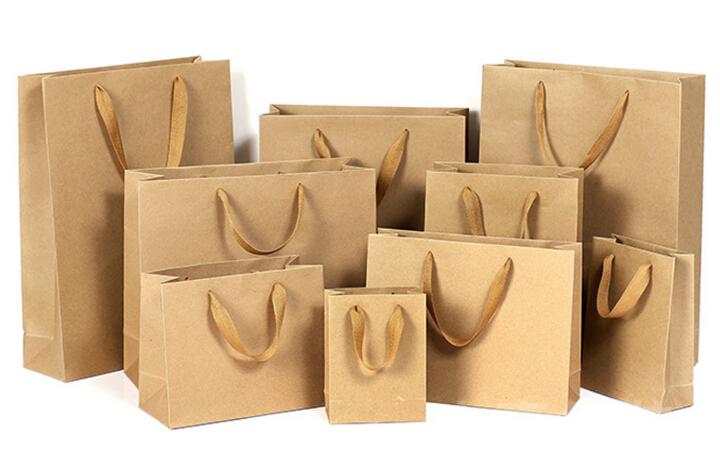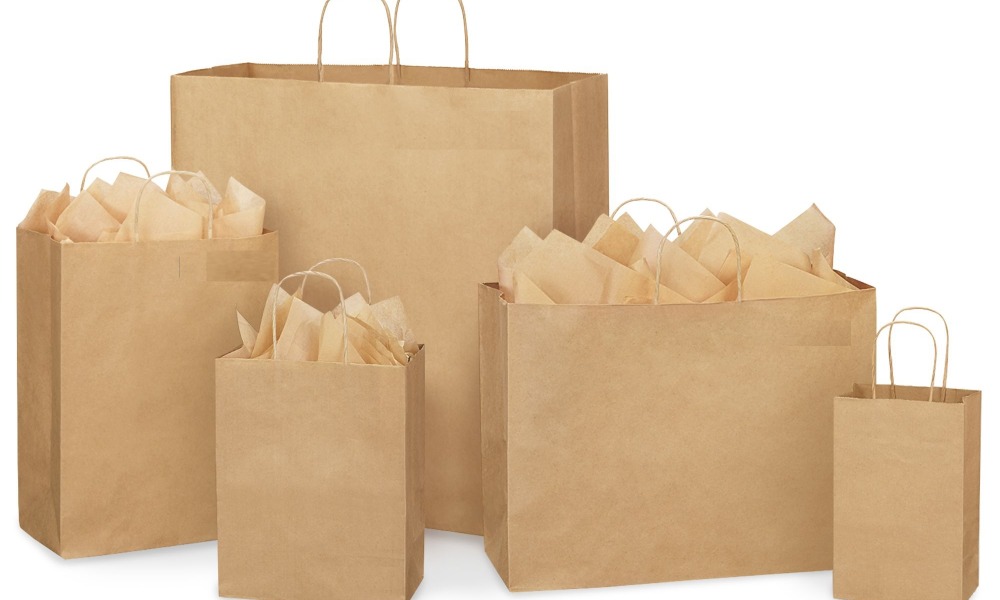The use of plastic bags for grocery shopping began in the early 1980s, but in recent years we have learned about the environmental impact of these bags. Since then, environmentalists and governments of different countries are pushing measures to limit their use.
Reusable and paper bags are seen as an alternative to plastic bags; it is not very difficult to spot these bags being used around us now. Reusable bags such as grocery bags, laundry bags, and wine paper bags have become a commonplace.

Paper Bags: There are many reasons why paper is better than plastic. Not only is it more recyclable but paper is also easily bio-degradable by microbes. This fact alone makes paper bags a better option than bags made up of plastics, as it is safe to say that plastic bags aren’t bio-degradable at all. Microbes cannot degrade plastic and it takes 500 to 1000 years for UV rays from the sun to degrade the plastic.
Paper bags are made up of a minimum of 35% recycled paper or fiber and after being used, they can be recycled again. The same recycling option is not necessarily available with plastics because most plastic factories don’t accept used plastics; used plastics are difficult to clean to make them ready for the recycling process. They can also clog the machines and complicate the whole recycling process.
Reusable bags: Reusable bags are made up of fabrics such as canvas, jute, and woven synthetic fibers. These bags are very durable and can be used hundreds, if not thousands, of times before they wear out. There are many wholesale stores and supermarkets that encourage the use of reusable bags. They provide these bags to the customers so that they can bring these the next time they come to make a purchase. Many of these bags are so durable that they can be washed in laundry machines.
Environmental Impact of Plastic Bags: Plastic bags create a barrier in the soil and hinder the growth and spread of microbes. This is harmful to the soil. Chlorinated plastics release harmful chemicals into the surroundings. These chemicals can get into ground water which can cause a serious health hazard to area drinking supplies.
Plastic bags are also responsible for the deaths of thousands of marine animals each year. Studies have shown that these marine animals confuse plastic bags for jellyfish and consume them. The bags get into their stomachs and block the passage of food which causes starvation and ultimately results in death.
Plastic is made from crude oil and natural gas, two sources that are in limited supply and may soon become exhausted. Also, mining of these two petroleum products requires a lot of pollution and deforestation. These mining practices are doing great damage to the environment.
Conclusion:
There are many reasons why plastic bags are harmful to the environment. We, as human beings have already done a lot of harm to the environment and it is high time we realize this and correct it by changing our habits.
The whole world is facing the challenge of waste management. It is the duty of every human being to contribute to the green cause by using paper or reusable bags instead of plastic bags, wherever it is possible. So, the next time you are buying groceries, just say no to plastic bags and do your part to protect the environment.

